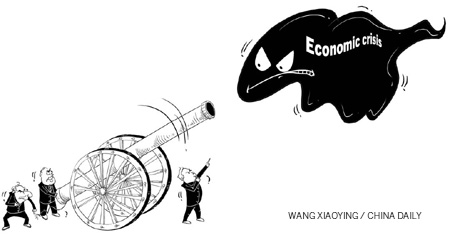New reality calls for shared norms

Following a decade characterized by an explosion of global challenges, and most recently a structural economic crisis, we now live in a completely new reality. Never before has the world faced so many serious challenges simultaneously. Leaders from all sectors of society are finding it increasingly difficult to navigate this new reality. Our old tools and models to address these problems don't work anymore. We are living in a world that is becoming increasingly complex and interconnected and, at the same time, experiencing an erosion of common values and principles that undermines public trust in leadership as well as future economic growth and political stability.
|
Don't miss: |
 |
As we begin the second decade of the 21st century, humanity is at a crossroads. We can either continue to work as lobbyists for our narrowly defined self-interests and keep doing the same old things that got us into the crisis in the first place. Or we can act together as true global leaders, with long-term global public interest in mind and at heart.
Following the economic crisis of the past two years, we have now entered a new era of austerity and greater modesty. In this new reality, collective sacrifices must be made to safeguard and enhance our future. While a total collapse of the global financial system was averted, governments around the world have gone into huge debts to do so. In the short term, this is leading to higher taxes, reductions in social and public health systems as well as reduced investments in education and infrastructure.
As the economic center of gravity continues to move to the East and the South, it will create political, economic and social shock waves. And new global players - in particular non-state actors - are emerging at an unforeseen pace. This new fluid global power structure, marked by greater expressions of national interests, may lead countries to look primarily inward when attempting to solve any problem.
 0
0 







Go to Forum >>0 Comments